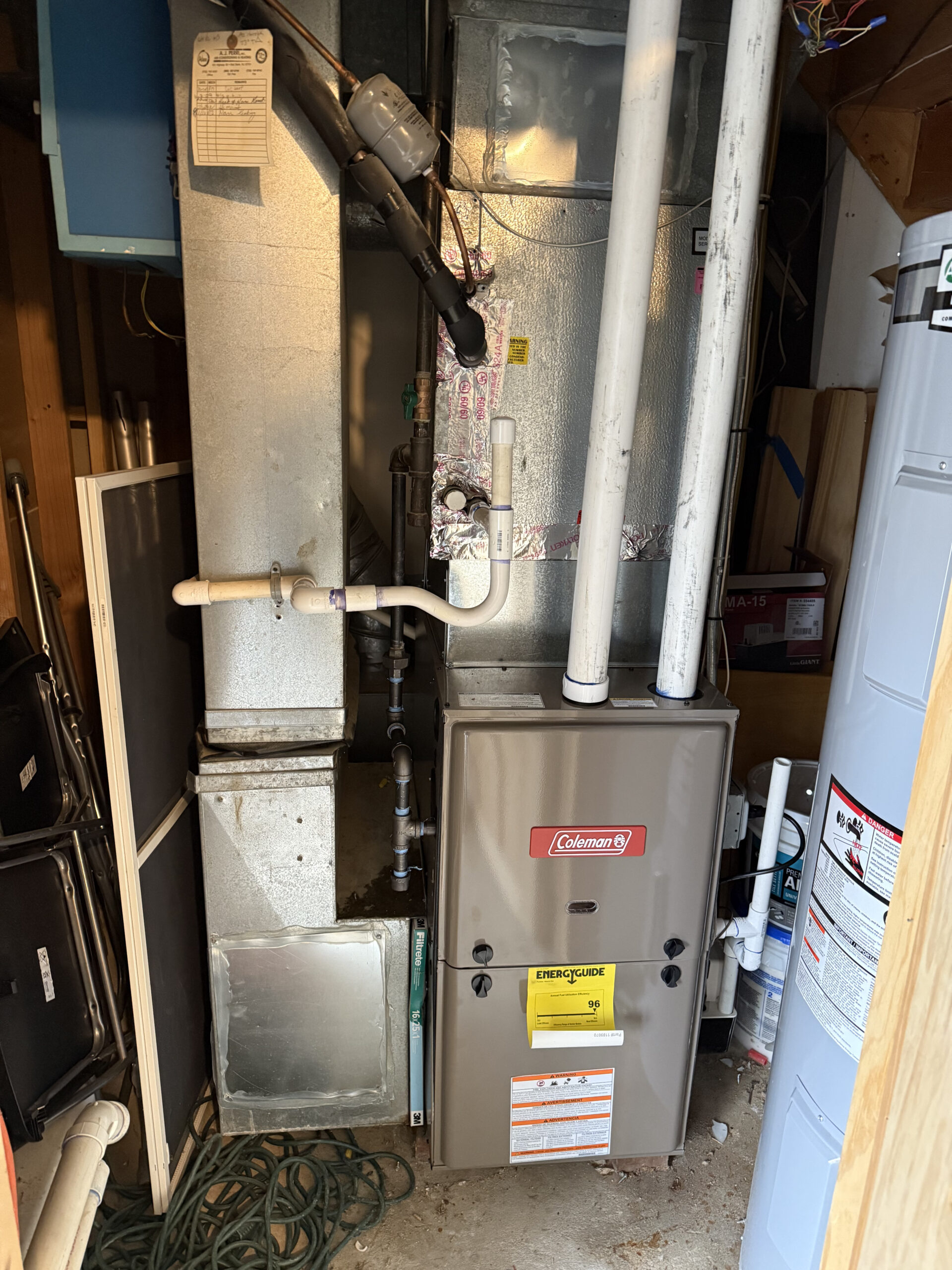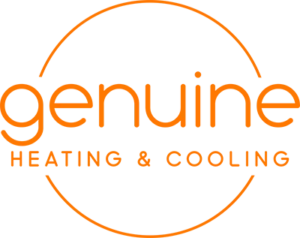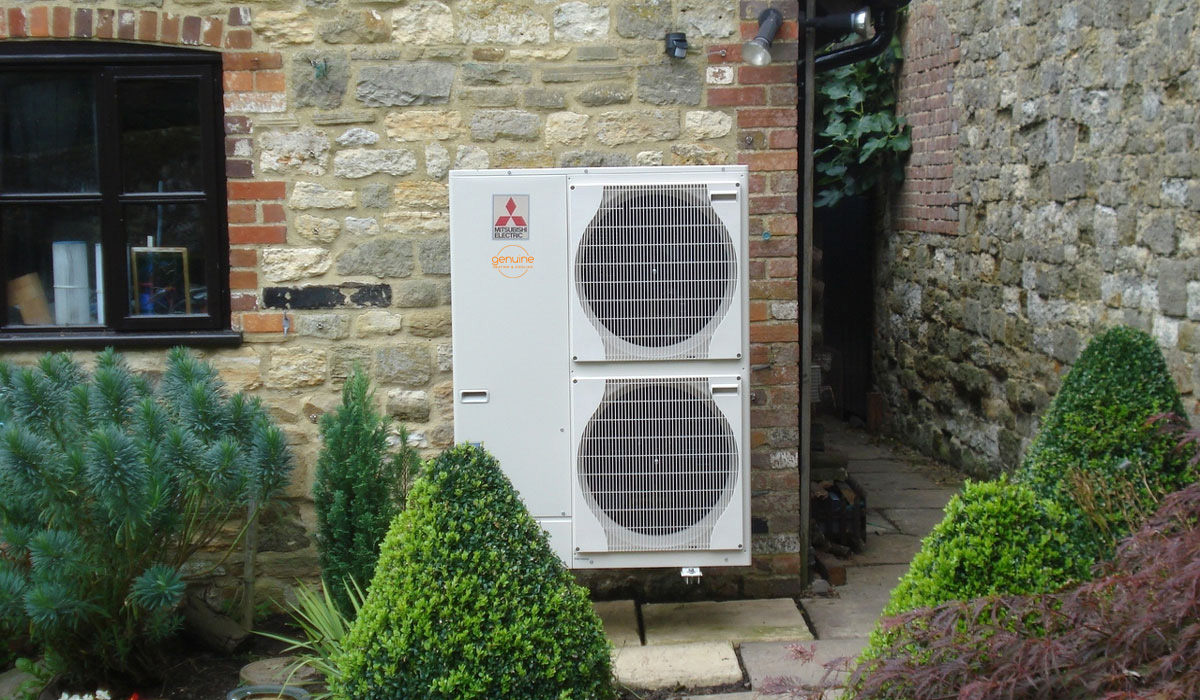
These systems provide both heating and cooling in one unit — and with recent advances, they now work even during cold NJ winters. If you’re exploring options beyond traditional furnaces, boilers, or central AC, a heat pump may be the ideal solution.
This guide covers how heat pumps work, why they’re different from traditional systems, what installation looks like in NJ homes, and the benefits you can expect.
What Is a Heat Pump System?
A heat pump is an all-in-one HVAC system that moves heat instead of generating it.
- In winter: it extracts heat from the outside air (even cold air has heat energy) and transfers it inside.
- In summer: it reverses the process, pulling heat out of your home and releasing it outdoors.
Because it doesn’t burn fuel or rely on high-resistance electric coils, it runs more efficiently than furnaces or baseboard heating.
Benefits of Heat Pump Systems
Energy Efficiency and Lower Bills
Most modern heat pumps boast SEER ratings of 18–20+ and Heating Seasonal Performance Factor (HSPF) ratings above 9. Compared to oil heat or electric resistance heaters, this can cut utility bills by 20–40%. For a typical NJ household, that means saving hundreds of dollars each year.
Heating and Cooling in One
Instead of paying for a separate furnace and AC, one heat pump system handles both. That means fewer installations, fewer repairs, and simpler maintenance.
Runs on Electricity, Not Fuel
No need for oil deliveries, propane tanks, or worrying about gas leaks. A heat pump uses electricity — which is increasingly sourced from renewable energy in NJ.
Eco-Friendly Operation
By reducing reliance on fossil fuels, heat pumps cut your home’s carbon footprint. With New Jersey’s clean energy initiatives, they’re one of the most environmentally responsible HVAC choices.
Quiet Operation
Outdoor heat pump units typically operate at 40–55 decibels — about the sound level of a quiet conversation. That’s noticeably quieter than older AC condensers or noisy furnaces cycling on and off.
Rebate-Eligible in NJ
Heat pumps qualify for NJ Clean Energy Program rebates and federal tax credits, helping offset upfront costs.
Types of Heat Pumps
Air Source Heat Pumps
The most common for NJ homes, these units pull heat directly from outdoor air. They’re available in ducted (using existing ductwork) or ductless (mini split) options.
Cold Climate Heat Pumps
Specially engineered to maintain full heating output even in subzero conditions (down to -13°F). Perfect for Jersey Shore winters and inland towns where temps drop lower.
Ducted Heat Pumps
Best for homeowners replacing a furnace and central AC in a home with ductwork already in place. They tie right into your existing air distribution system.
Ductless Heat Pumps (Mini Splits)
Wall-mounted or ceiling units in individual rooms allow for zoned comfort without ducts. Ideal for older NJ homes, additions, or properties where running ductwork is impractical.
Do Heat Pumps Work in NJ Winters?
Yes — today’s models are designed for it. Cold-climate systems like Mitsubishi Hyper-Heat, Daikin Aurora, or Bosch Extreme Cold maintain capacity even when the thermometer dips below zero.
- Maintain 100% heating capacity down to -5°F
- Use inverter-driven compressors that adjust output automatically
- Can be paired with an existing furnace for a dual-fuel setup (heat pump runs most of the time, furnace kicks in only on the coldest nights)
Installation Process in New Jersey
A typical install includes:
- Load Calculation & Site Assessment – ensures correct sizing (measured in BTUs).
- System Selection – ducted vs. ductless, number of zones, placement of units.
- Outdoor Unit Install – usually on a concrete pad or mounted on brackets.
- Indoor Air Handlers – wall, ceiling cassette, or floor console units depending on layout.
- Line Sets & Electrical Hookup – connect refrigerant lines, electrical wiring, and condensate drains.
- Smart Thermostat Setup – many units integrate with Wi-Fi controls for zoning.
Timeline: Most installs take 1–3 days depending on complexity.
Permits: Required in NJ and handled by a licensed HVAC contractor.
Maintenance and Lifespan
Heat pumps typically last 12–15 years, similar to central AC and longer than gas furnaces in coastal NJ climates (where salt air can shorten equipment life).
Routine Maintenance
- Clean or replace filters monthly (inexpensive and easy for homeowners).
- Rinse coils and clear debris from outdoor unit.
- Check refrigerant levels and system performance annually.
- Inspect condensate drains for clogs.
Maintenance Contracts
We recommend signing up for a seasonal maintenance plan. This ensures:
- Priority service calls
- Discounted repairs
- Warranty compliance
- Regular checkups that extend system lifespan
Repairs
Common issues include refrigerant leaks, sensor malfunctions, or blower motor problems. Because most use standard refrigerants (R-410A, with newer systems transitioning to R-32), parts and service are widely available in NJ.
Costs of Heat Pump Systems
Single-Zone
Installing one ductless heat pump for a room or addition can range $4,000–$7,500 depending on brand and capacity.
Multi-Zone
Whole-home ductless setups with 3–5 zones typically run $10,000–$20,000+.
Ducted Systems
Replacing an old furnace and central AC with a ducted heat pump may cost $12,000–$18,000.
What Impacts Price?
- System size & capacity (BTUs)
- Cold-climate vs. standard models
- Brand & efficiency ratings
- Number of zones or air handlers
- Installation complexity (ductwork, electrical upgrades, etc.)
Rebates and Tax Credits
New Jersey and federal incentives significantly reduce costs:
- NJ Clean Energy rebates: up to $2,000 per qualifying system
- Federal tax credits: 30% up to $2,000 for ENERGY STAR® systems
- Utility company rebates may also apply depending on your provider
Who Should Consider a Heat Pump in NJ?
- Homeowners with electric baseboard or oil heat
- Those facing high utility bills from older HVAC equipment
- Rental property owners seeking efficient, low-maintenance systems
- Families wanting eco-friendly, future-proof technology
- Shore homeowners looking for cooling + heating in one system without bulky ductwork
FAQs for NJ Homeowners
How does a heat pump differ from a furnace or central AC?
A furnace generates heat by burning gas or oil, while a central AC only provides cooling. A heat pump does both — heating in winter and cooling in summer — by transferring heat instead of generating it. This makes it more efficient and cost-effective year-round.
Do heat pumps work in New Jersey winters?
Yes. Cold-climate heat pumps are designed to provide full heating capacity even in subzero temperatures (down to -5°F or lower). Many NJ homeowners use them as their primary heat source, while others combine them with a furnace in a dual-fuel setup for added peace of mind.
Are heat pumps noisy?
No. Modern heat pumps are much quieter than older HVAC systems. Outdoor units typically run at 40–55 decibels (like a quiet conversation), and indoor air handlers are nearly silent compared to a window AC.
What is the lifespan of a heat pump?
On average, heat pumps last 12–15 years, similar to central AC units. With regular maintenance, especially in coastal NJ areas where salt air can be harsh, systems may last even longer.
How much does a heat pump cost in NJ?
A single-zone ductless heat pump might cost $4,000–$7,500, while a multi-zone or whole-home ducted system can run $10,000–$20,000+. Costs depend on the number of zones, system capacity, brand, and installation complexity.
Do heat pumps require ductwork?
Not always. If your home already has ducts, a ducted system may be best. But ductless options (mini splits) use wall, ceiling cassette, or floor console units, making them perfect for older Shore homes, additions, or properties without ducts.
How much maintenance does a heat pump need?
Maintenance is straightforward: clean filters monthly, keep the outdoor unit clear of debris, and schedule a professional tune-up once a year. Signing up for a maintenance contract ensures priority service, discounted repairs, and warranty compliance.
Are heat pumps eligible for rebates in New Jersey?
Yes. Through the NJ Clean Energy Program and federal tax credits, homeowners can receive up to $2,000 in rebates plus a 30% federal tax credit (up to $2,000) on qualifying ENERGY STAR® systems.
Is a heat pump better than gas heat?
It depends on your home and energy costs. In many cases, a heat pump is cheaper to run than natural gas, especially when paired with solar or time-of-use electric rates. Plus, it eliminates the need for fuel delivery and reduces carbon emissions.
Can a heat pump heat and cool the whole house?
Yes. With the right sizing and design, heat pumps can heat and cool an entire NJ home. Multi-zone systems allow each room or floor to be independently controlled for maximum comfort.
Heat pump systems offer year-round comfort, lower energy bills, and a future-proof alternative to traditional heating and cooling in New Jersey. Whether ducted or ductless, today’s systems are powerful enough to handle NJ winters — and smart enough to save you money.
👉 Call now or book online to get started — and ask about our limited-time rebates and tune-up discounts for first-time customers.
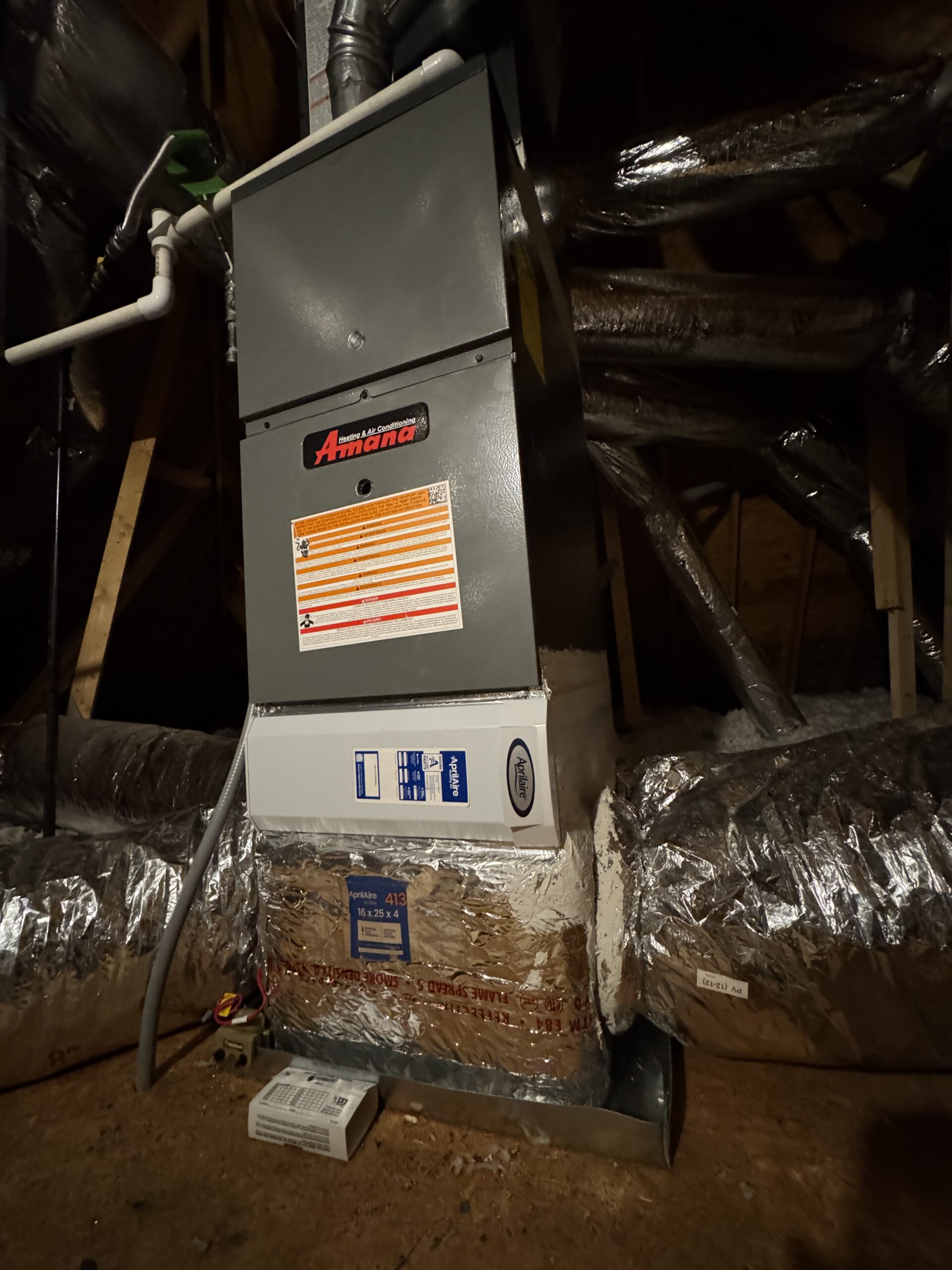
Ultimate Guide to Furnace Repair Issues in New Jersey Homes

Do Higher HVAC Filters Help or Hurt Your System?
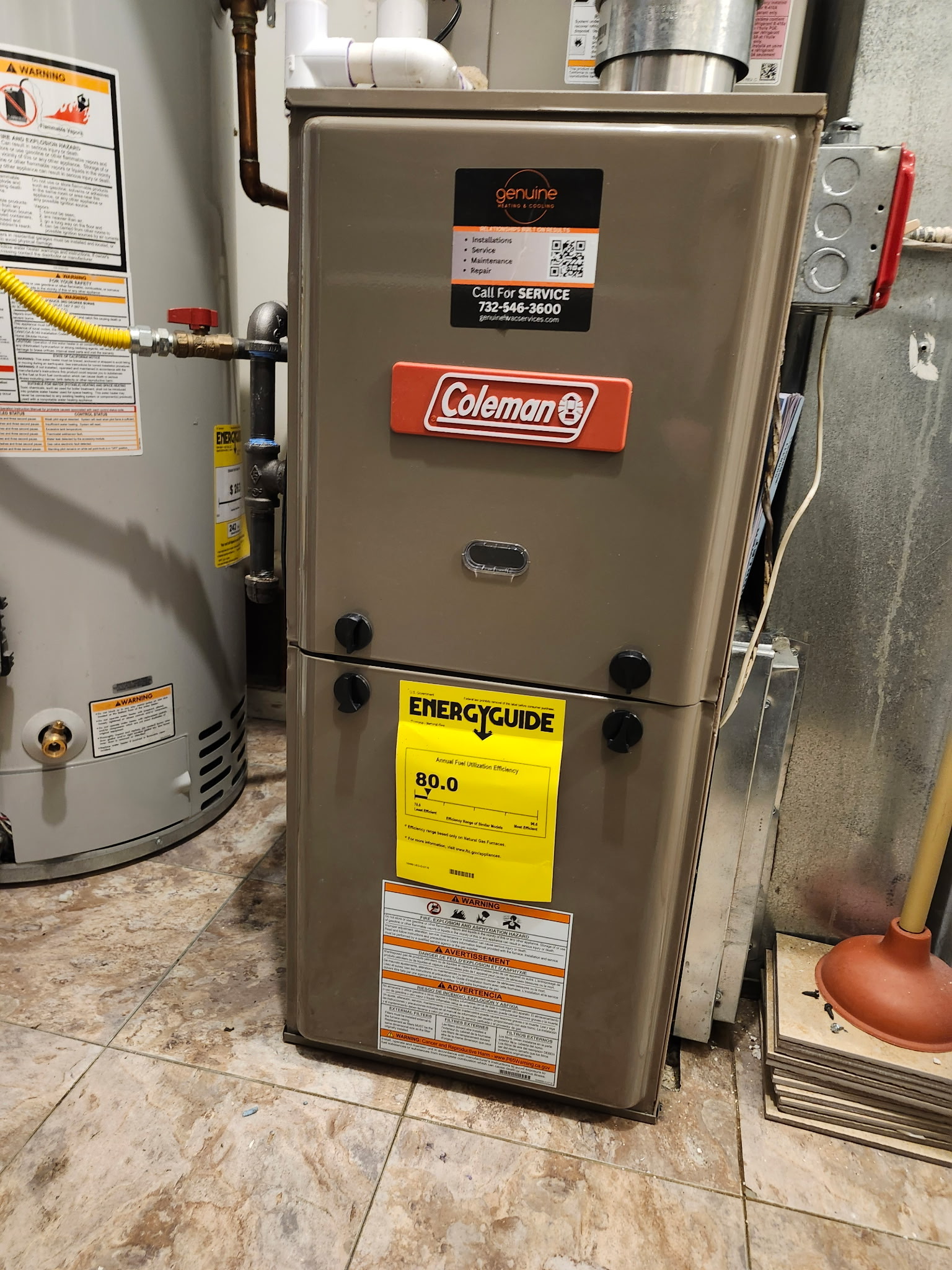
Oil Furnace Won’t Turn On? 8 Common Reasons and How to Fix Them
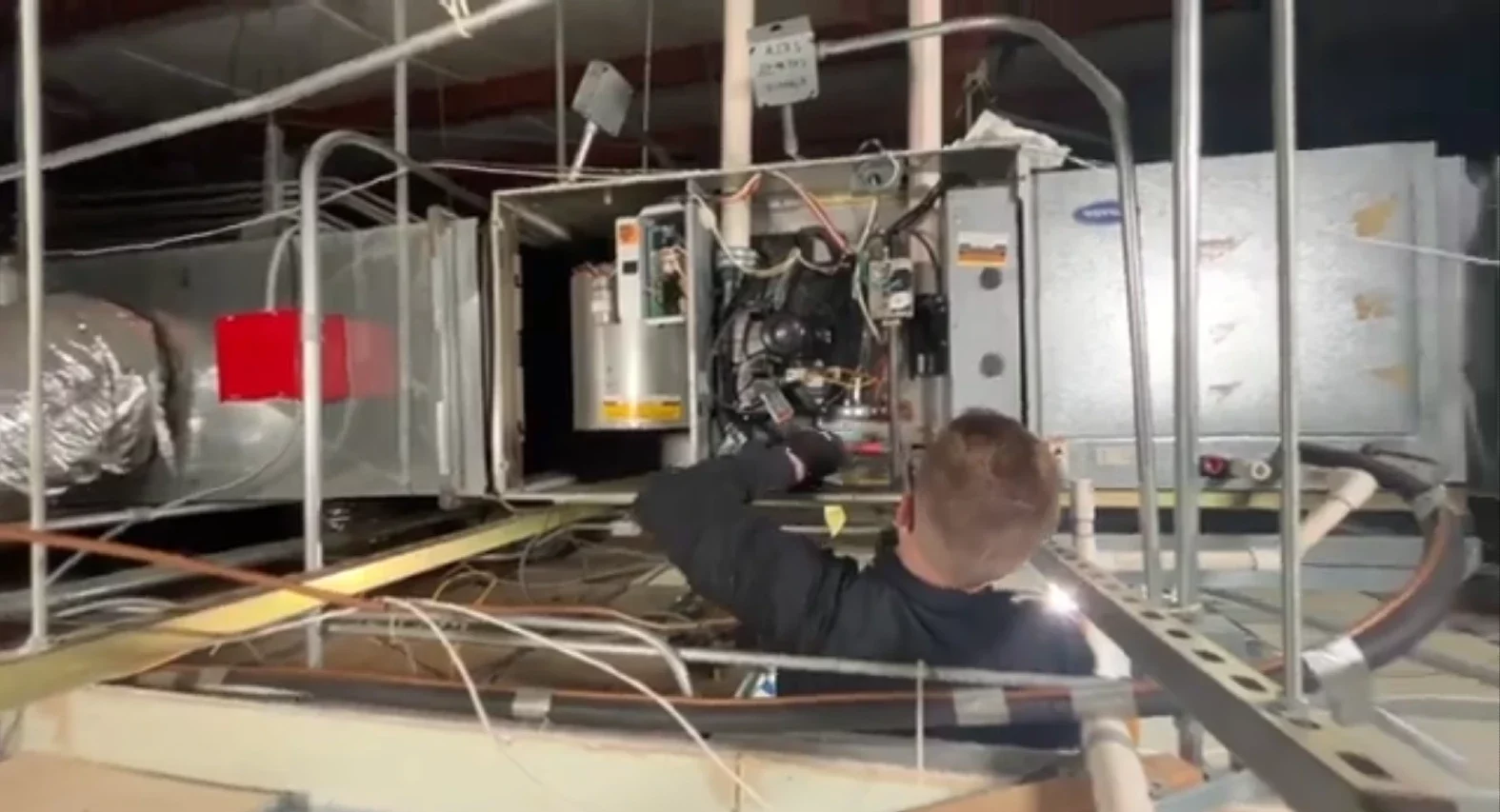
Electric Furnace Won’t Turn On? Troubleshooting Guide for NJ Homes
